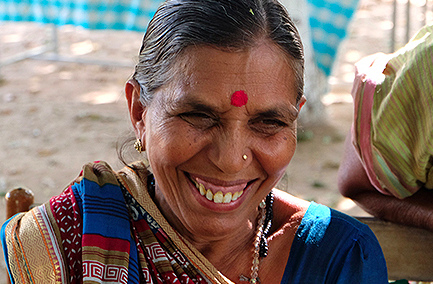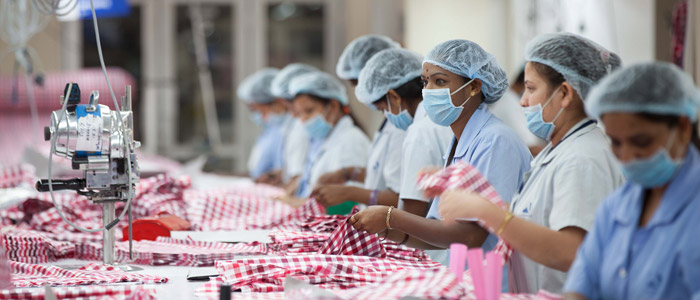By Emily Reed – Fashion PR student
I’m currently writing an assignment on a specific ethical crisis that Primark have faced and the more and more research I do into Primark as a company the more I discover about their ethical standings and the more I begin to feel for them. I find it hard to understand why Primark get such bad press. To me they seem to have a pretty good understanding of ethics and a good strategy in place.
As you may know Primark do not have a transactional website and instead their site is a great source for consumers or investors alike to see what Primark have been up to.
Their site is full of information on their charitable work within the communities of their supply chains. They work with local communities and even partner with existing projects, such as, HERproject, to help maintain and ensure the longevity of the projects.

They belong to the Ethical Trading Initiative and have been one of the highest scoring retailers. They have joined forces with DFID to improve the lives of garment workers in developing countries and they have partnered with a huge variety of companies to prove their dedication to helping the environment as well as the lives of their workers, such as; The Carbon Trust, Cotton Connect and Better Works. They appear to be doing everything possible to prove to the public that they are an ethical company, so where’s the missing link?
Primark have a solid CSR (Corporate Social Responsibility) because they are owned by parent company ABF (Associated British Foods) and this means they have to comply with their way of working.
So why have Primark come under so much scrutiny? Is it because they are simply an easy target for the media? Primark have said before, not in so many words, that people shouldn’t be questioning them on how they can sell a top so cheaply but why luxury brands are able to get away with selling a top for so much? After all, a lot of these brands manufacture their garments in the same factories as budget brands!

Why are the media out to get them? In the past Primark have faced false allegations of child labour by the BBC’s Panorama. Panorama staged footage of three young boys supposedly working for Primark and it took three years for the fashion giants to clear their name and to get an apology, but by then it was too late. The allegations were already out there, their reputation had already been tarnished, and unfairly so!
Yes, I agree the collapse of one of the factories Primark happened to manufacture in was extremely upsetting and unfortunate but it wasn’t down to Primark. Since the tragedy it has been discovered that it was factory owners that demanded workers stay in the factory even after it being declared as unsafe. So could it be argued that all Primark are guilty of is a lack of communication with their factories?
After the disaster, Primark did all they could for the broken communities, they immediately released emergency aid and paid large sums of compensation to the families as well as the communities affected. This is more than could be said for some other retailers, take Matalan for example, they only paid up after they received pressure from other parties, but they don’t appear to have a stigma surrounding them?
So the question is what can Primark do to improve their reputation that they are not already doing?

It is not just Primark – they were targeted first because it was suspicious how they can make clothing so cheaply. I saw the Panorama programme and believed what they had to say. There was also another documentary on the BBC last week which showed how firms like M&S and Zara do not realise that child labour is used to make their “ethically sourced” clothing. Factories in Turkey are using Syrian refugees from the camps. It revealed how one father died because he was working so many hours that he fell asleep at the machine and had an accident . His children took over his work and like other 8-12 year olds were working 12-13 hours a day without a break for a pittance. This is not the fault of the clothing industries. These 8-12 year olds are pretending to be 16 and yet there are 20-30 year olds pretending to be 15 to be accepted as orphan refugees to get into wealthier countries. We need to sort the world out and forget about the price-tag – Sol
LikeLike
Yes i totally agree. I watched that programme as well, its unbelievable to think things like this is happening right now. Companies need to have more control over their out-sourcing and know what is happening in these factories. There’s a real dilemma because some people believe brands should stop manufacturing in less-developed countries, however, some people rely on that wage for their entire family to survive. And actually the garment industry is one of the better industries to work in in Bangladesh, for example. It’s also been said that women are escaping forced marriage because they have jobs and other options now. And yes we need to sort out the world but unfortunately i don’t see that happening anytime soon!
LikeLiked by 1 person
I agree, you raise some very interesting points. I see now that it must have been the last straw for M&S, who are cutting their clothing range and just concentrating on food now.
LikeLiked by 1 person
It’s a shame, a lot of people will be loosing their jobs, here and where they out-source their manufacturing because they are unable to maintain a healthy communication with suppliers and factory owners!
LikeLiked by 1 person
I agree. You would think in this age of a technological communications revolution, things would be getting better!
LikeLike
Love this article, I had speculations of Primark as their clothing is so cheap, but since reading i have then done my own research and actually you’re right, there definitely seems to be something lacking in their communications. I don’t get why they wouldn’t shout about their good work.
LikeLike
Yes very true, if you look on their ethics page it clearly highlights everything they do however it simply isn’t communicated to their stakeholders. You can have a look here if you havn’t already http://www.primark.com/en/our-ethics
Thanks for your comment!
Emily
LikeLike
I think that just because someone says they are ethical doesn’t mean that they are. There is so much greed and so many lies told to the public from all big business industries that it is impossible to know what brands to trust. I think there are probably a lot of companies that are treating their workers fairly and opening up opportunities for women, I just find it hard to trust them. There needs to be more transparency and the media need to be more careful about how they report their stories.
LikeLike
Yeah i totally agree, i think a lot goes on that us as consumers aren’t aware of. My concern really when writing this blog post was about Primark’s unfair reputation. I have had to do a lot of in depth research into this topic for an assignment and it appears Primark have a much better CSR than many other companies, yet they’re still tainted with a bad reputation. I understand the collapse of the Rana Plaza factory was very damaging for their reputation, however they do a great deal more for these victims than other companies that were involved such as Gap and Matalan. In fact Primark were the first brand to come forward and help. They gave financial aid to all the workers and their families, not just ones that worked for Primark.
I completely understand your point, my point was more about how Primark have such a stigma surrounding them when they do a lot more than other companies that seem to have a good reputation. Like i’ve said before i think its a case of lack of communication.
Thanks so much for your comment!
LikeLike